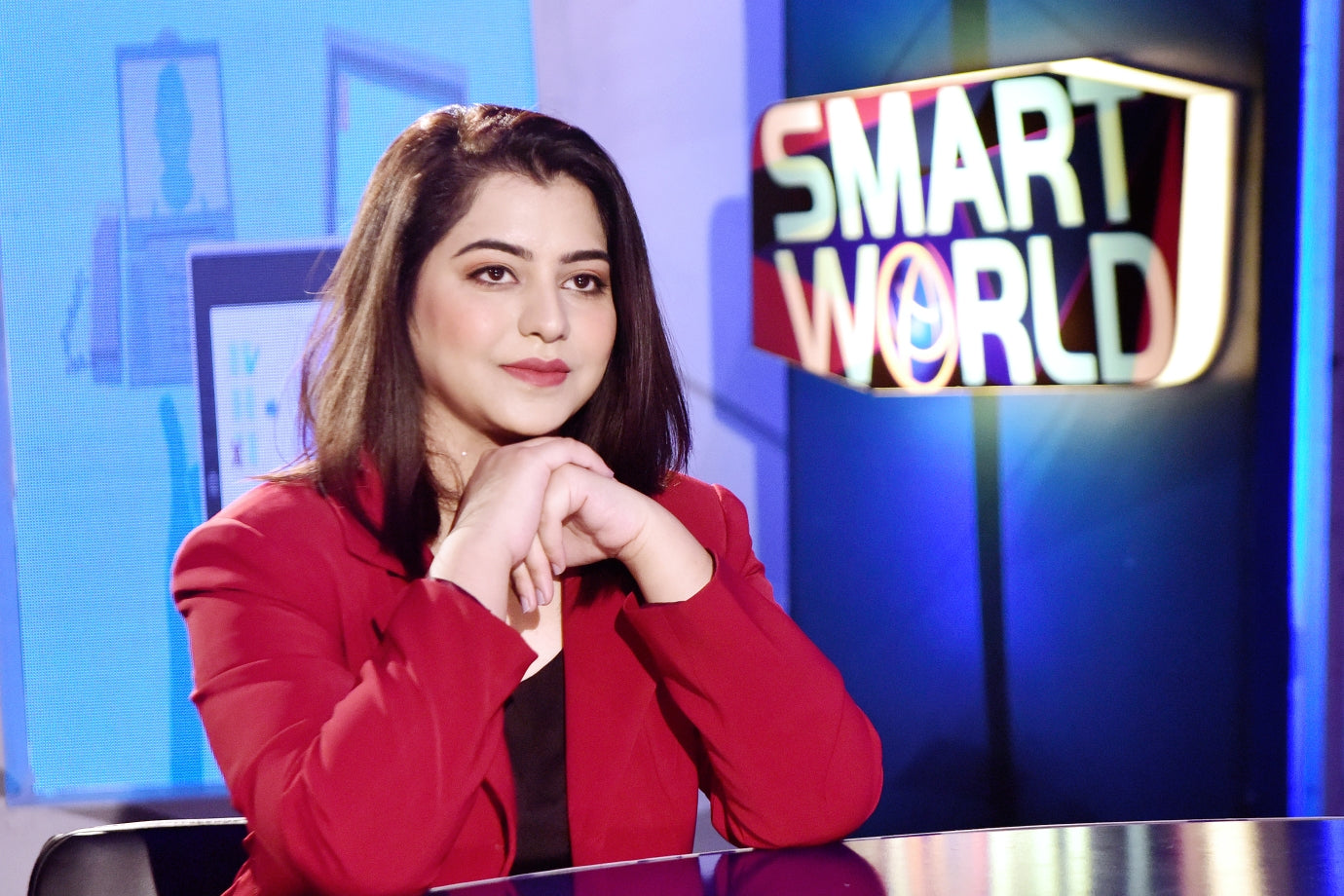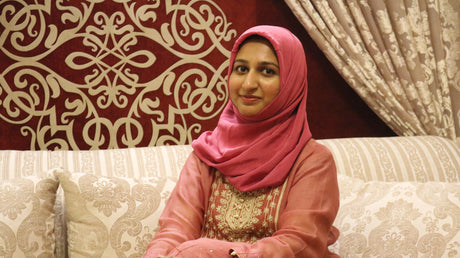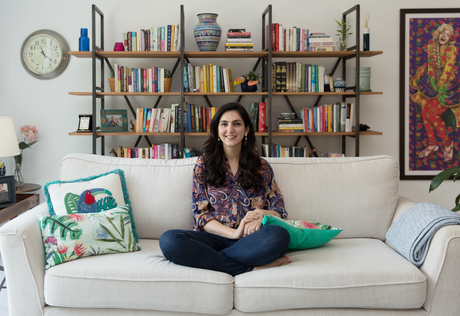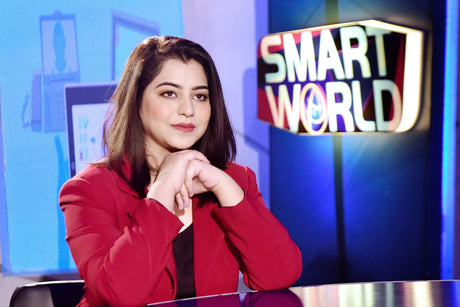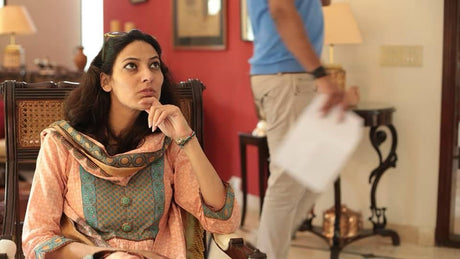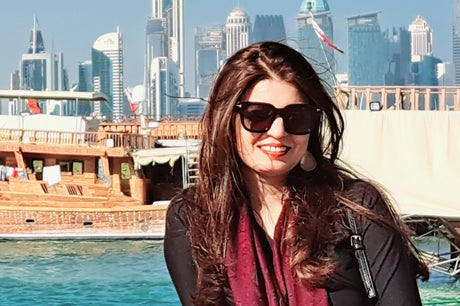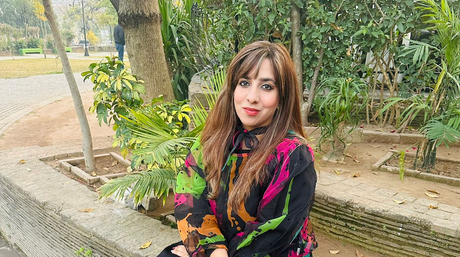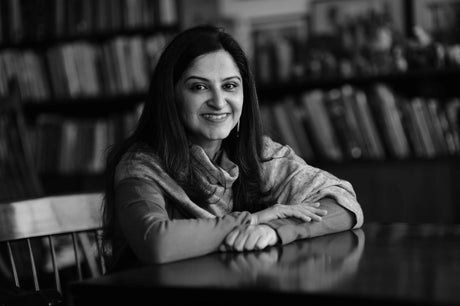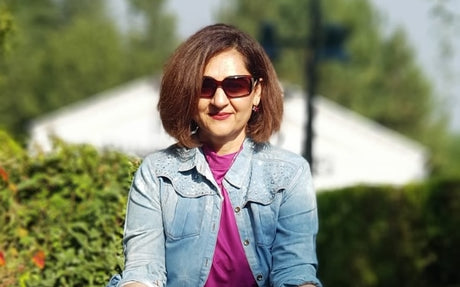Sehar Ghafoor, a native of Lahore, emerges from a lineage traditionally associated with esteemed professions such as medicine and engineering, yet she carves her distinct path in the landscape of media. Inhabiting a world where her aspirations defy convention, Sehar currently resides with her parents and is surrounded by the achievements of her two elder brothers, who have made significant strides in their respective fields.
Her professional journey finds her at the forefront of technology journalism, where she holds the role of a tech journalist at Pakistan Television, anchoring the groundbreaking show ‘Smart World.’ This pioneering program not only showcases the latest technological innovations but also sheds light on the smarter lifestyle choices adopted by our evolving society.
A passion for the performing arts has been a constant companion on Sehar's journey. From interpreting characters in Dante's Inferno to crafting and directing theatrical adaptations of "The Godfather" and "Helen of Troy," she has embraced the world of theater at various levels. This love for drama extends to her role as a Drama Coach at the International School of Choueifat, where she mentors aspiring young talents.

Sehar's childhood dreams of becoming an astronaut were intertwined with a deep-rooted fascination for science, sparked by the captivating images of the cosmos and planets adorned with the NASA insignia in her classroom. This early fascination laid the groundwork for a profound interest that continued to grow throughout her academic years.
As she stood at the crossroads of her educational journey, Sehar faced a pivotal decision: whether to pursue a path in science and technology or follow her equally fervent passion for storytelling and simplifying complex concepts. Fortunately, her journey unfolded into a harmonious blend of both worlds, where she continues to inspire and inform through her work in the dynamic realm of media.
This new series of interviews by Nani aims to shed the spotlight on amazing Pakistani women who share their insights about work, motherhood, and more, providing a platform for their stories to inspire and empower.

How did you transition from a background in pure sciences to becoming a tech journalist?
The shift from studying pure sciences to tech journalism was unexpected for me. While I've always been captivated by science and technology, my academic journey initially focused on pure sciences during my A Levels. However, as I continued my studies, I discovered a passion for storytelling and media. This led me to pursue a degree in Media & Communications, where I learned the importance of effectively communicating complex ideas to a wider audience. This realization sparked my interest in tech journalism, where I strive to make technology accessible and engaging for people from all backgrounds.
Being a pioneer in your family for choosing a different professional path, what challenges did you face, and how did you overcome them?
Initially, there were concerns about whether I was making the right decision, especially coming from a background where professions like doctors and engineers are the norm. The challenge was not only in convincing others but also in assuring myself that I was on the right track. However, the pivotal factor that made this transition possible was the unwavering support of my family. While the initial skepticism was palpable, witnessing my progress and success in this chosen field gradually transformed their concerns into encouragement.
As a female broadcast journalist in Pakistan, have you encountered specific challenges in the industry, and how have you navigated them?
I consider myself fortunate to have initiated my journalistic journey within a state channel where I encountered an exceptionally professional team. Throughout this experience, I never felt any form of discrimination based on my gender. However, it's equally important to shed light on the pervasive societal challenges that persist within our media industry, concealed in various fragments e.g. harassment, lack of representation in leadership, societal pressure.
In addition, despite the ongoing evolution of the media landscape there are certain outdated concepts that still persist. The stereotypical image of female broadcast journalists with sharp, sleek jawlines, specific body weights, and an abundance of vibrant makeup continues to thrive. This surely detracts them from their professional competence and the value of work. It's a high time for our broadcast media to break free from this clichéd mold.

Do you believe there are unique perspectives or strengths that being a female journalist brings to your role, particularly in the tech domain?
Absolutely. Being a female journalist in the tech domain offers a distinct vantage point. Firstly, diversity in perspectives is crucial in any field, and technology is no exception. Moreover, there's an opportunity to bridge the gender gap in tech reporting. Women often have unique insights into the ways technology impacts various aspects of life, including how it influences women's experiences and roles in society. In addition, my presence as a female journalist can inspire and encourage other women to take an interest in technology and journalism, breaking down stereotypes and encouraging diversity in these fields.
What are your aspirations for the future, both in your career as a tech journalist and in your involvement with the performing arts?
In my career as a tech journalist, my aspirations are two-fold. Firstly, I aim to continue delivering insightful and accessible tech journalism that resonates with a diverse audience. Additionally, I aspire to take on more impactful projects, perhaps exploring the intersection of technology and social issues to create meaningful and thought-provoking content.
Simultaneously, in the realm of performing arts, I see myself pushing creative boundaries. I aim to contribute to powerful and thought-provoking productions, exploring avenues to write and direct, creating narratives that resonate with audiences on a profound level.

Are there specific areas in technology or storytelling that you're excited to explore in the coming years?
I'm genuinely excited about the future possibilities in both technology and storytelling. In the tech domain, I'm particularly keen on delving deeper into emerging fields like artificial intelligence and its societal implications. Exploring the intersection of technology and human experiences, such as the ethical considerations in AI, is a topic that intrigues me.
On the storytelling front, I'm excited about experimenting with multimedia formats to enhance narrative experiences. Podcasting, interactive content, and immersive storytelling techniques all offer unique ways to engage audiences. I also aspire to explore more deeply the stories of underrepresented communities and bring their voices to the forefront.

What do you enjoy most about broadcast journalism, Sehar?
What I enjoy most about broadcast journalism is the ability to connect with a diverse audience in real-time. The power of visual storytelling in broadcast journalism is truly captivating. It allows me to convey not only the facts, but also the emotions and nuances of a story, fostering a deeper understanding among viewers. Building that connection and being a source of reliable information for the audience is incredibly rewarding.
What's the most important lesson you've ever learned in your career?
The most important lesson that has shaped my career is a deep awareness of the role media plays in our society today. In the current landscape, media often becomes a source of chaos and disruption due to the widespread adaptation of sensationalism. Unfortunately, there is a tendency to veer away from portraying reality accurately, with unnecessary amplification of news becoming a prevalent practice. As I've grown in my career, I've learned which ethical boundaries should not be crossed in this field. It's important to refrain from participating in the unnecessary sensationalization that adversely affects society. I've also become increasingly aware that media holds the power to influence public perception and opinion. Hence, every individual working in this field should exercise meticulous care, responsibility, and integrity when disseminating information to the public.

